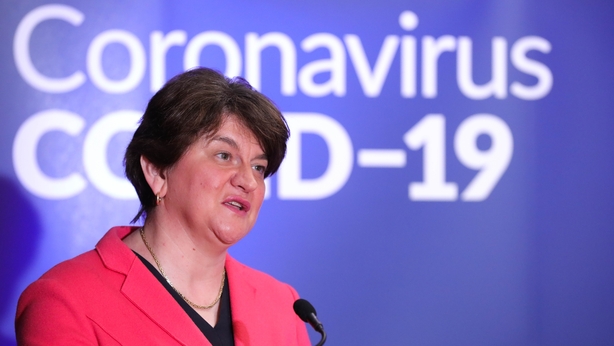British Prime Minister Boris Johnson has urged the public to "follow the rules" to control the spread of Covid-19, as he set out how the lockdown in England will be eased in the coming months.
Mr Johnson said it was right that the sacrifices made by the British people in order to drive down transmission of the virus were now acknowledged, and that the country will begin to take steps towards opening up.
The plan does not apply to the whole of the UK, as the devolved governments in Northern Ireland, Scotland and Wales have power to make their own decisions on a number of matters, including health, and some have already done so.
He told the House of Commons: "If the data goes the wrong way, if the alert level begins to rise, we will have no hesitation in putting on the brakes and delaying or reintroducing measures locally, regionally, or nationally."
He added: "Our challenge is to find a way forward that preserves our hard won gains, while easing the burden of lockdown and I'll be candid with the House - this is a supremely difficult balance to strike."
Mr Johnson set out his "road map" for easing restrictions, starting on Wednesday with people who cannot work from home - and in sectors such as manufacturing, food production and construction - urged back to work.
Garden centres will also reopen and people will be allowed outdoors for unlimited exercise in pursuits such as tennis, golf and basketball.
However, they must keep two metres away from other people and only exercise with their own household.
People in England should also wear face coverings in enclosed places, such as in some shops and on public transport, Mr Johnson said, while people can meet with a person from another household as long as social distancing is maintained.
Driving to destinations for outdoor walks and exercise is also permitted.
The new document, which comes as the UK death toll neared 37,000, sets out future plans if the virus reproduction rate - the R value - can be kept below one.
These include:
- The government's Scientific Advisory Group for Emergencies (Sage) has been asked to look at the idea of a household "bubble" in the coming weeks, where one household is allowed to join up with and interact with one other household only.
- International travellers will be asked to quarantine for 14 days when they enter the country, either in accommodation of their choice or provided by the government if there are no other options. The date of implementation has not been announced.
- The government's ambition is that all primary school children will be able to go to school for a month before the summer holidays.
- Non-essential retail such as clothes and shoe shops could be able to open no earlier than 1 June if it can be proven they can keep people safe.
- Pubs, bars, restaurants, nail salons, hairdressers, accommodation, gyms and cinemas will need to stay closed until at least July.
The government has yet to publish guidance on how workplaces can become "Covid secure", but the new road map says "social-distancing guidance on public transport must be followed rigorously".
The report says the government is hoping a vaccine or drug treatments will be developed against Covid-19, but says this cannot be relied upon and a vaccine may never be found.
Meanwhile, ministers in Northern Ireland tomorrow aim to publish their plan for exiting lockdown, First Minister Arlene Foster said.

She said restrictions on outdoor activities would be eased before indoor ones.
The DUP leader told BBC's Good Morning Ulster programme the position around when to reopen schools has not yet been decided but suggested it could be in late August or early September.
Read more:
Is there a subtle strategy to Johnson's confusing Covid-19 address?
Latest coronavirus stories
Scotland's First Minister Nicola Sturgeon made a plea to Scots "not to get distracted" by messages from England, where the lockdown is beginning to be eased.
Instead she said they must continue to follow Scottish government guidance, requiring them to stay at home unless it is essential.
"I want to reiterate those announcements do not apply yet here in Scotland," she said.
"That is not, let me stress, for any political reason, it is because the Scottish government is not yet confident these changes can be made safely in Scotland yet without running the risk of the virus potentially running out of control again.
"So Scotland's lockdown restrictions remain in place for now."

